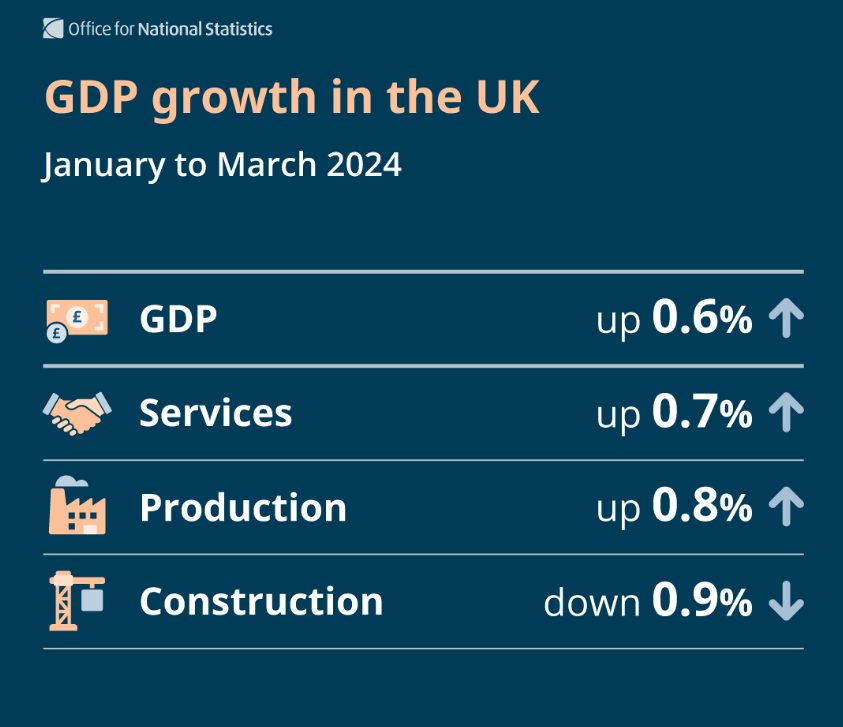Recession over as UK GDP grows faster than expected in first quarter

The UK has powered its way out of last year’s recession, new figures show, after the economy grew much faster than expected in March.
According to figures from the Office for National Statistics (ONS), the UK economy grew 0.4 per cent on a monthly basis, bringing its total growth in the first quarter to 0.6 per cent.
Economists had expected the economy to grow just 0.1 per cent in March, which would have brought the quarterly growth rate to 0.4 per cent after growth in January and February.
The figures mean the recession recorded over the second half of last year, during which GDP shrunk by a cumulative 0.4 per cent, has come to an end.
“After two quarters of contraction, the UK economy returned to positive growth in the first three months of this year,” ONS director of economic statistics, Liz McKeown said.
“There was broad-based strength across the service industries with retail, public transport and haulage, and health all performing well,” she continued.

The figures showed that real GDP per head, which has been falling for seven consecutive quarters, grew 0.4 per cent in the first quarter. However, it is still 0.7 per cent lower than a year ago.
GDP per head is a good proxy for living standards.
Looking at March specifically, McKeown noted the economy grew “robustly” thanks to strong growth in the services sector. Wholesales, the health sector and hospitality performed particularly well.
Despite falling into recession last year, growth so far this year has exceeded expectations on the back of stronger consumer spending.
The combination of falling inflation and the prospect of lower interest rates has provided a healthy tailwind for household spending which many economists think will continue.
“We expect to see continued growth for the rest of this year, supported by a more favourable economic backdrop,” Yael Selfin, chief economist at KPMG UK said.
“Falling inflation and real pay increases should help repair some of the damage to household incomes and support households’ consumption,” she continued.
Last year the economy grew just 0.1 per cent with economists expecting growth to pick up to around 0.4 per cent in 2024, which looks fairly pessimistic after this morning’s release. The Office for Budget Responsibility (OBR) expects a 0.8 per cent expansion.
The economy will be an important battleground ahead of this year’s general election. The Conservatives, trailing Labour by around 20 percentage points, hope that a steadily improving economy will improve their electoral prospects.
“Today’s growth figures are proof that the economy is returning to full health for the first time since the pandemic,” Chancellor of the Exchequer Jeremy Hunt said.
“We’re growing this year and have the best outlook among European G7 countries over the next six years, with wages growing faster than inflation, energy prices falling and tax cuts worth £900 to the average worker hitting bank accounts,” he continued.
However, earlier this week Rachel Reeves, the shadow chancellor, argued Sunak was “gaslighting” the public over the state of the economy.